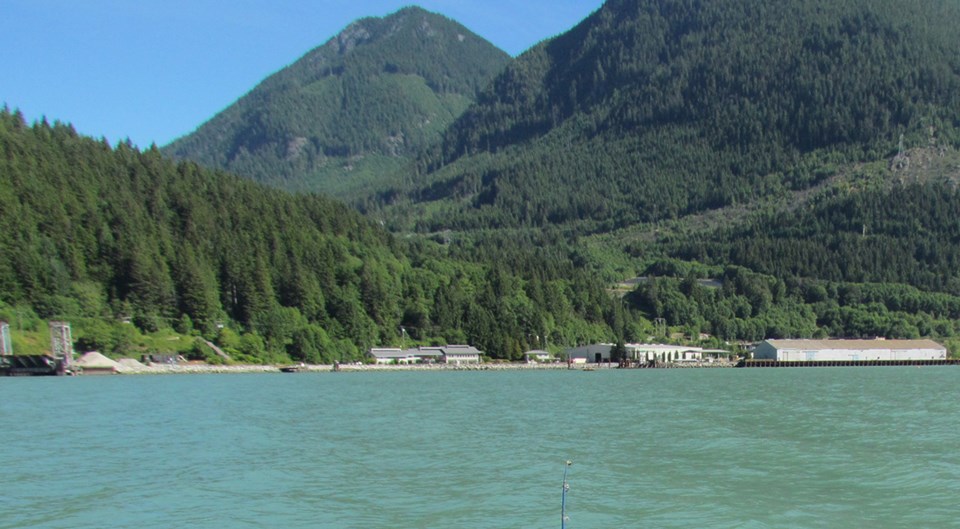There could be substantial tax revenue in district coffers if the proposed Woodfibre LNG facility goes ahead.
The District of Squamish could collect between $5 million and $7 million in taxes per year from the liquefied natural gas export facility, according to a presentation by BC Assessment representatives at the district’s finance and audit standing committee meeting on June 23.
The presentation was a start to the district hammering out a possible municipal tax agreement with the company, according to Councillor Doug Race, who is chair of the committee.
Large heavy industrial projects are assessed at roughly 10–15 per cent of the total project cost, estimated at $1.6 billion for Woodfibre LNG project, plus the land value, according to Tina Ireland, director of assessment services with BC Assessment.
The Woodfibre LNG property is expected to be assessed at roughly $21 million, she said. Therefore, Woodfibre LNG would have an approximate assessment taxable value of $181-$261 million.
The district’s current mill rate for heavy industrial is 27.5 mills, which means $27,500 in tax per $1 million of assessed value. That would make Woodfibre LNG’s possible tax bill between $5 million and $7 million.
Woodfibre LNG representatives had previously suggested they would likely pay $2 million in district taxes per year with a cap of $3 million. That figure was based on approximately what the former pulp mill paid before it shut down in 2006, according to Byng Giraud of Woodfibre LNG.
“We didn’t have a way of assessing the taxes at that point and it was quite early at that point and government hadn’t done any work on this topic yet,” he said.
The current assessment is very preliminary, Giraud said.
“There is no precedent here. It will take a little time,” he said. “The deeper discussions will be months away, but it gives you a sense, it gives you a range.”
The estimates are still rough according to Ireland because LNG is a new industry in B.C. and some of the valuations are not yet known, such as how to assess the proposed facility’s large storage tanks.
Woodfibre LNG currently pays about $200,000 a year in property tax on the decommissioned site.
If the taxes do end up being at the higher end of the assessment, at around $7 million a year, Giraud said that would not influence the company’s ultimate investment decision in the project, but the figure would be taken into consideration.
“We have a lot of other taxes to pay, this is only one small piece. We have corporate tax, we have LNG tax, we have carbon tax, we have municipal tax, we have First Nation related deals, we have the higher LNG power rate, so we have a lot of other fees and they all go into the mix.”



